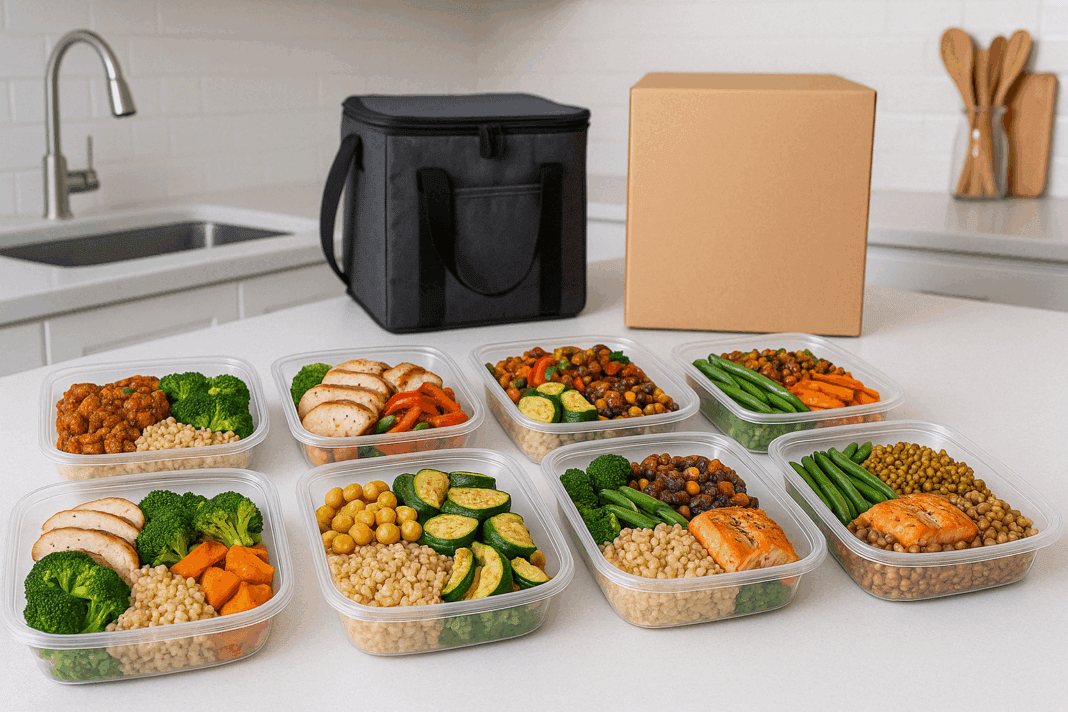In today’s fast-paced world, convenience often takes precedence over nutrition, particularly when it comes to meals. For many individuals striving to lose weight, balancing time, cost, and dietary quality becomes a daunting challenge. This is where weight loss meal delivery services come into play—offering professionally curated, portion-controlled meals that aim to make healthy eating both accessible and sustainable. But with countless companies flooding the market, how do you identify the best weight loss meal delivery service that’s not only effective but also affordable? Drawing from evidence-based nutrition science, this article provides a comprehensive analysis of the options, benefits, and key considerations when selecting a plan that aligns with both your health goals and budget.
You may also like: Smart Meal Prep for Weight Loss: Expert-Approved Lunch Ideas and Recipes to Stay on Track
The Rise of Meal Delivery Services in the Age of Lifestyle Health
The meal delivery industry has undergone a dramatic transformation in the past decade. Once dominated by luxury gourmet services, the market has expanded to meet the needs of health-conscious consumers seeking affordable, ready-to-eat solutions. Particularly within the context of mindful eating and sustainable health practices, meal delivery programs have gained traction among individuals committed to long-term lifestyle changes rather than quick fixes.
Among the biggest drivers of this shift is a growing awareness of how diet quality influences chronic disease risk, energy levels, mental clarity, and weight management. The convenience of meal delivery has opened doors for people with demanding schedules who might otherwise default to less nutritious options. With dietitians, chefs, and scientists collaborating to design balanced, macro-calibrated meals, the best weight loss meal delivery services have become powerful tools in promoting weight loss, metabolic health, and satiety without the need for calorie counting or complex meal prep.
What Science Says About Structured Meal Plans and Weight Loss Success
A growing body of research supports the role of structured meal plans in achieving sustainable weight loss. Studies consistently show that individuals who follow diet meal plans delivery programs tend to experience greater initial weight loss and long-term adherence than those who attempt to self-regulate their eating habits without guidance. This success is attributed to reduced decision fatigue, improved portion control, and consistent nutrient intake.
Additionally, many weight loss meal services offer meals high in fiber, plant-based protein, and complex carbohydrates, which contribute to feelings of fullness. Science backs this approach, noting that satiety-promoting foods can help reduce total daily caloric intake without increasing hunger. These findings are particularly relevant for individuals comparing the ketogenic diet vs low carb eating styles, as structured programs may help bridge the gap between efficacy and sustainability.
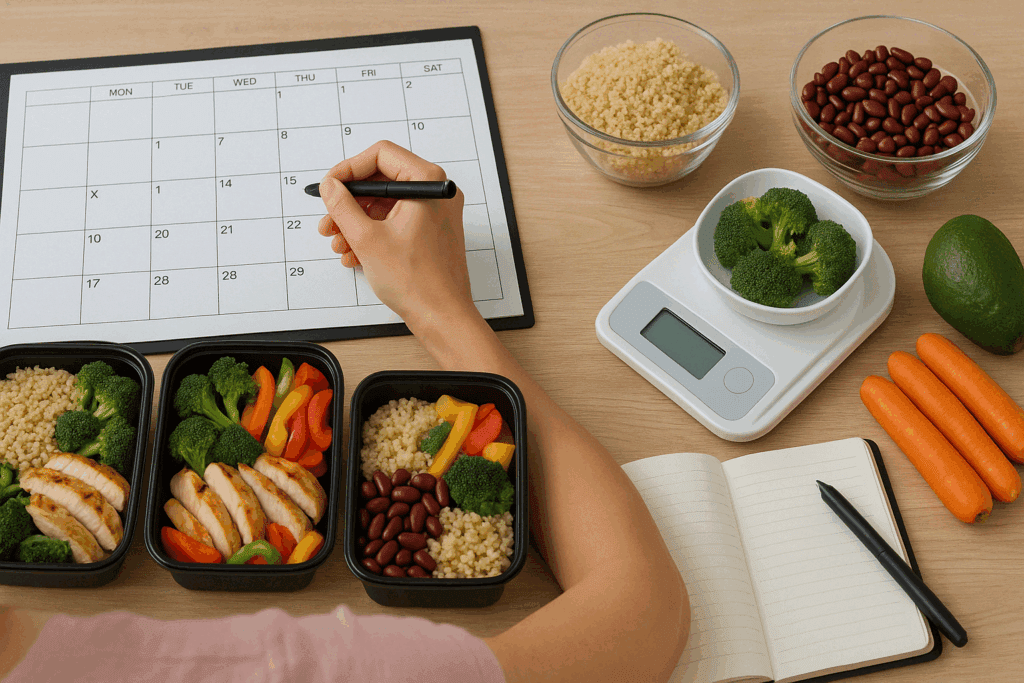
Understanding the Differences: Low Carb Diet vs Keto Diet Services
In the world of weight loss meal delivery, it’s common to find plans emphasizing either low carbohydrate or ketogenic principles. But while these two approaches share similarities, they also differ significantly in macronutrient distribution, scientific backing, and long-term health outcomes. The low carb diet keto diet comparison often centers around total carbohydrate intake: low-carb plans typically allow 50 to 150 grams of carbs per day, while ketogenic diets limit carbs to about 20 to 50 grams, emphasizing fat as the primary energy source.
Scientific literature remains divided on whether keto is a good diet for long-term weight loss. Some studies highlight its potential for rapid initial weight loss and improved insulin sensitivity, while others question whether it is a keto no carbs approach or a temporary metabolic shift that may be unsustainable. The key question—is a keto diet sustainable?—remains relevant, as many users experience difficulty maintaining strict ketosis over time. In contrast, moderate low-carb plans may offer greater flexibility, making them more suitable for real-world adherence.
What to Look for in the Best Prepared Meals for Weight Loss
The best prepared meals for weight loss are those that align with your nutritional needs, lifestyle constraints, and taste preferences. Key indicators of quality include a balanced macronutrient profile, limited added sugars and refined carbohydrates, generous fiber content, and appropriate calorie control. Importantly, services should also disclose ingredients and offer customizable options to accommodate dietary restrictions, allergies, or specific health goals.
Meal delivery programs that incorporate whole food ingredients and minimize artificial preservatives tend to score higher in terms of long-term health benefits. While the appeal of “cheapest weight loss meal delivery” options is understandable, consumers should remain cautious of low-cost plans that sacrifice nutritional integrity for affordability. Instead, look for inexpensive healthy meal delivery services that maintain high standards of food quality while offering value through subscription models or bulk meal discounts.
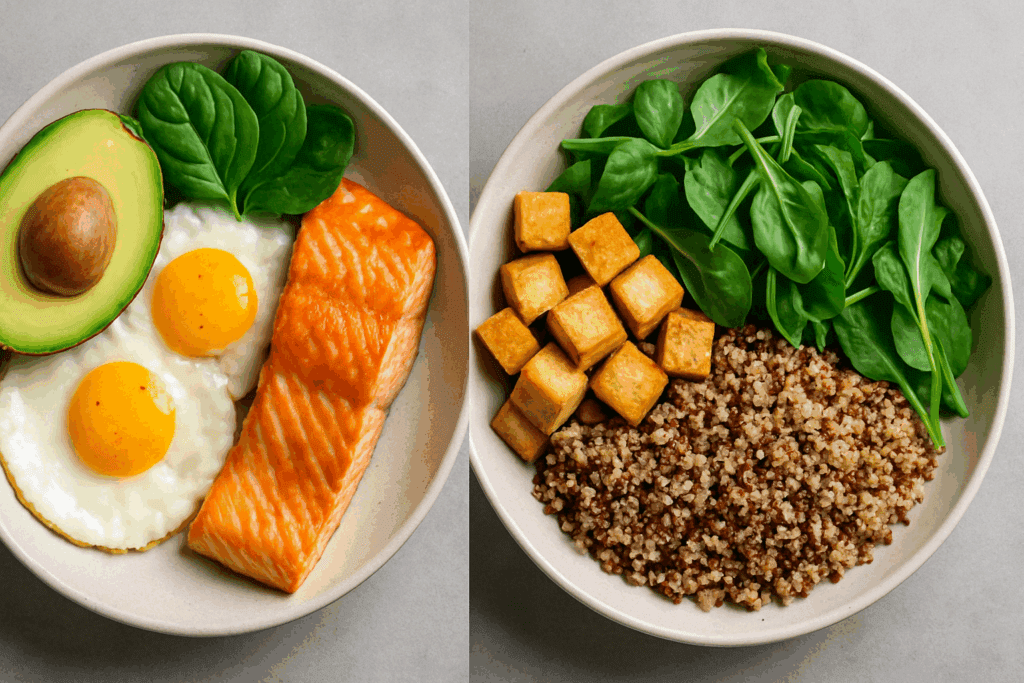
Evaluating the Best Meal Prep Services for Weight Loss: Convenience Meets Personalization
For many people, consistency is the biggest barrier to achieving their health goals. This is where the best meal prep services for weight loss shine. These services eliminate the daily burden of meal planning, grocery shopping, and cooking, making it easier to stay committed to a dietary regimen. Top-tier programs also offer flexibility, allowing customers to choose between breakfast, lunch, dinner, and snack options.
What sets apart the best food delivery service for weight loss is their integration of evidence-based strategies, such as portion control and nutrient timing. Programs that offer nutritionist-approved menus and real-time tracking apps provide users with a higher level of engagement, which can translate to better adherence and measurable results. Whether you’re pursuing a low-carb diet keto diet model or exploring plant-based approaches, personalized meal prep can streamline the process and remove guesswork.
Affordability Without Sacrificing Quality: The Case for Inexpensive Healthy Meal Delivery
It is a common misconception that eating healthfully must come with a hefty price tag. In truth, many inexpensive healthy meal delivery programs offer excellent nutritional value without breaking the bank. These services often use cost-efficient but nutrient-rich ingredients like legumes, whole grains, and seasonal vegetables to create satisfying meals.
To find the cheapest weight loss meal delivery options without compromising on quality, consumers should consider meal frequency, portion sizes, and included services such as dietitian consultations or app-based tracking. Some plans offer greater savings when meals are ordered in bulk or when opting for plant-based choices, which are generally less expensive to produce. Ultimately, the best weight loss meal delivery solution is one that fits your lifestyle, preferences, and budget—while still delivering results.
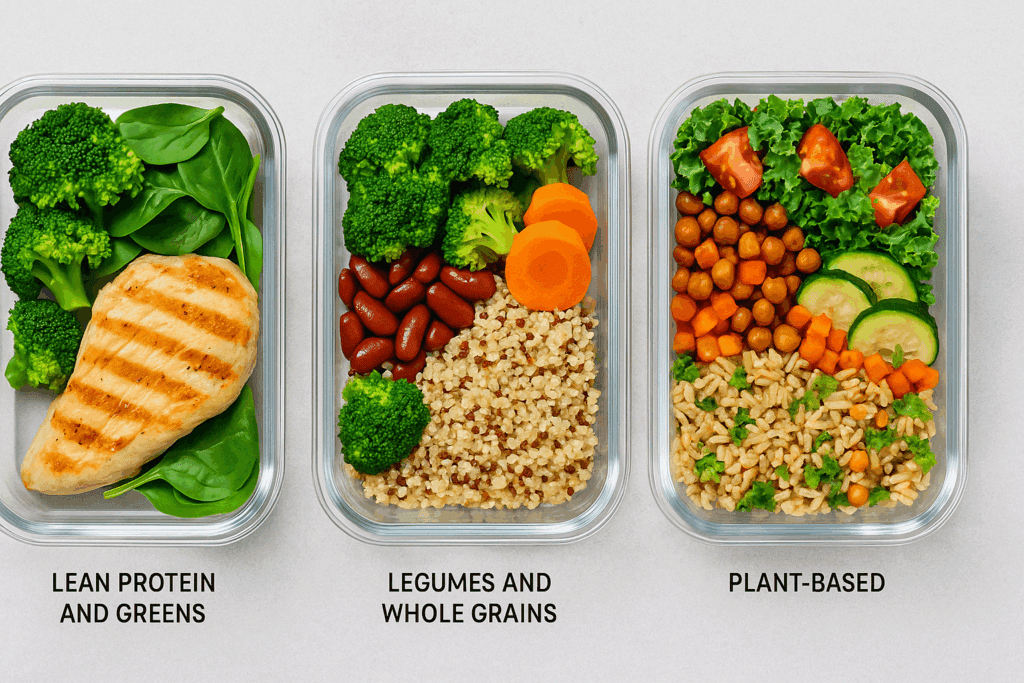
Comparing the Best Meal Delivery Service for Weight Loss: Real-World Success Stories
Customer testimonials and case studies can offer valuable insight into how different meal delivery programs perform in real-world scenarios. Many individuals report significant weight loss, improved blood sugar control, and enhanced energy levels after just a few weeks on structured plans. These outcomes are especially pronounced when services focus on whole foods and avoid the extremes of trendy dieting.
For example, some users have found that low-carb meal delivery plans help them transition away from processed foods and develop a more intuitive relationship with hunger and satiety. Others appreciate the simplicity and consistency offered by plant-forward programs, which emphasize nutrient density and support gut health. Whether opting for a keto-style plan or a Mediterranean-inspired diet meal plans delivery, the common thread is adherence to scientifically validated principles of nutrition and portion management.
Navigating the Debate: Is Keto a Good Diet or a Fad?
The question “is keto a good diet?” is as relevant today as ever. While the ketogenic diet can offer benefits such as reduced appetite and rapid water weight loss, its long-term efficacy remains under scrutiny. Clinical studies have shown that keto can improve certain metabolic markers in the short term, but adherence rates decline significantly after six months.
Critics argue that the restrictive nature of keto, along with its exclusion of fiber-rich carbohydrates, raises concerns about gut health, micronutrient intake, and long-term cardiovascular risk. While the approach may be effective for specific populations, such as individuals with type 2 diabetes or epilepsy, it may not be suitable for the general population. As such, a moderate, low-carb approach may provide a more sustainable alternative that still yields weight loss benefits.
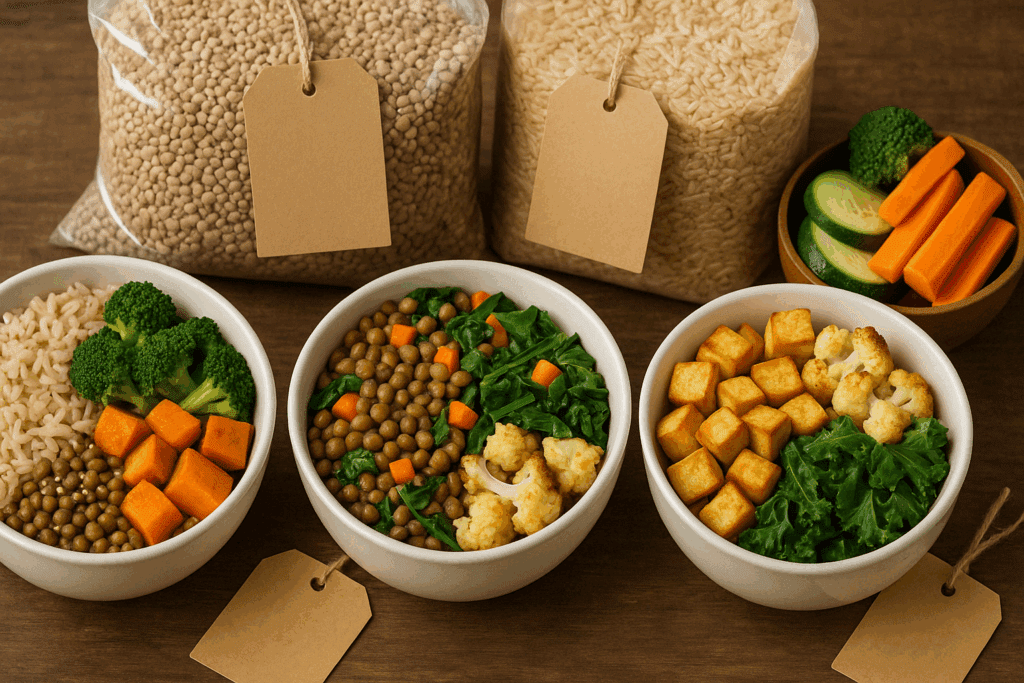
Is a Keto Diet Sustainable in Everyday Life?
Sustainability is a cornerstone of any successful diet plan, and the ketogenic diet faces unique challenges in this regard. For many people, the strict carbohydrate limits and reliance on high-fat foods create barriers to adherence, especially in social or travel settings. Furthermore, the exclusion of many fruits, legumes, and whole grains may lead to nutritional deficiencies over time.
The question of is a keto diet sustainable has prompted many experts to recommend modified versions of the diet, such as cyclical or targeted keto, which offer greater flexibility while preserving some of the benefits. Still, these adaptations require careful planning and often the guidance of a healthcare professional to ensure nutritional adequacy.
Making Sense of the Confusion: Keto Diet vs Low Carb Diet
It is crucial to distinguish between the keto diet vs low carb diet when evaluating meal delivery services. While both reduce carbohydrate intake, they differ in their physiological effects and dietary structure. A ketogenic plan induces ketosis, a metabolic state where fat becomes the primary energy source. In contrast, low-carb plans allow for more dietary diversity and often include limited amounts of fruit, starchy vegetables, and legumes.
This distinction matters because low-carb diets may be easier to follow long-term, especially for those who enjoy a broader range of food groups. Additionally, low-carb plans can still support weight loss by minimizing insulin spikes and encouraging fat metabolism. Therefore, when choosing the best meal prep services for weight loss, consumers should carefully assess their own preferences, health history, and willingness to adhere to dietary restrictions.
How the Best Weight Loss Meal Delivery Services Support a Healthier Lifestyle
At their core, the best weight loss meal delivery services are not just about shedding pounds—they’re about supporting a holistic, healthier lifestyle. This includes fostering a better relationship with food, cultivating mindfulness around eating habits, and establishing sustainable routines that promote long-term well-being.
These services often go beyond mere food provision. Many include coaching, progress tracking, and community support, which enhance accountability and motivation. Some programs are integrated with wearable devices or mobile apps, enabling users to monitor their activity, sleep, and stress levels alongside their nutritional intake. This systems-based approach aligns with current models of preventive health, which emphasize the interconnectivity of diet, behavior, and chronic disease risk.
Integrating Meal Delivery Into Your Personal Wellness Strategy
Meal delivery services can be particularly impactful when integrated into a broader wellness strategy that includes physical activity, stress management, and sleep hygiene. For example, individuals who pair their meal plans with regular strength training may experience enhanced muscle retention and metabolic flexibility. Others find that mindfulness practices, such as eating without distractions, amplify the benefits of portion-controlled meals.
Furthermore, these services can serve as educational tools, helping users learn what balanced meals look like in terms of portion size, nutrient ratios, and ingredient quality. Over time, this knowledge can empower individuals to make healthier choices even when dining out or preparing meals at home, reinforcing long-term success beyond the meal delivery phase.

Frequently Asked Questions (FAQ): Weight Loss Meal Delivery Services
1. How do weight loss meal delivery services compare to cooking at home in terms of long-term results?
While cooking at home allows for complete control over ingredients and portions, many people struggle with consistency, time, and meal variety. Weight loss meal delivery services bridge that gap by providing structure, convenience, and portion precision without requiring daily planning or grocery shopping. Especially for those with demanding schedules or limited cooking skills, the best meal delivery service for weight loss offers a streamlined approach that supports adherence. These services also minimize decision fatigue, which can reduce impulse eating or poor dietary choices. Over time, consistent use of the best weight loss meal delivery programs can produce comparable or even superior results to home cooking, particularly when nutritional quality and behavioral habits are taken into account.
2. What psychological benefits can structured meal delivery offer beyond weight loss?
Beyond physical results, structured meal delivery services can enhance mental clarity, reduce stress, and improve self-esteem. For individuals who experience anxiety around food choices or have a history of disordered eating, the predictability of diet meal plans delivery programs can reduce emotional triggers. By removing the burden of daily decision-making, users can focus on enjoying their meals mindfully, which aligns with principles of cognitive behavioral therapy for sustainable behavior change. The best meal prep services for weight loss often incorporate coaching or educational resources, which further reinforce positive self-image and body awareness. In this way, food delivery becomes a tool not just for weight control, but for psychological empowerment.
3. Are there meal delivery options suitable for people with food sensitivities or chronic health conditions?
Yes, many of the best prepared meals for weight loss now include customizable menus tailored to specific health needs. This includes gluten-free, dairy-free, low-sodium, diabetic-friendly, and anti-inflammatory plans. In fact, some of the best food delivery service for weight loss providers employ registered dietitians or medical advisory boards to ensure nutritional adequacy for special populations. For individuals managing conditions such as hypertension, insulin resistance, or autoimmune disorders, these targeted meal plans provide not only caloric control but therapeutic benefits. It’s also worth noting that inexpensive healthy meal delivery services often feature plant-forward or minimally processed meals, which can be gentler on the digestive system and better aligned with chronic disease management.
4. How do I assess whether a cheaper meal plan still provides quality nutrition?
When evaluating the cheapest weight loss meal delivery options, it’s essential to examine the ingredient list, macronutrient ratios, and sourcing practices. A truly valuable inexpensive healthy meal delivery program will prioritize whole food ingredients, adequate protein, and essential micronutrients without relying on fillers, preservatives, or excessive sodium. Watch for companies that publish detailed nutrition labels and sourcing transparency, including whether their meals are organic, non-GMO, or locally sourced. Some of the best weight loss meal delivery providers offer affordability through subscription models or rotating seasonal menus, not by compromising nutrition. Always prioritize meal services that offer transparency and evidence-based nutrition over simply being the lowest price per meal.
5. Can meal delivery services support a family or household with mixed dietary goals?
Absolutely—many of the best meal delivery service for weight loss programs now offer flexible subscriptions with individual customization. This means one household member can follow a calorie-controlled weight loss plan while another enjoys a maintenance or muscle-building option. Some services even allow customers to mix and match meals across different plans each week. This versatility is especially useful for families where one person is pursuing the best prepared meals for weight loss, while others have different caloric or dietary needs. Family-focused meal delivery companies also tend to offer bulk pricing or multi-meal discounts, making them an attractive option even compared to traditional grocery budgets.
6. What role does variety play in adherence to a meal delivery plan?
Variety is essential for both nutritional balance and psychological satisfaction. A lack of meal diversity can lead to flavor fatigue, making users more likely to abandon the plan. The best meal prep services for weight loss avoid this by rotating seasonal menus, introducing new recipes regularly, and allowing user feedback to inform future meal offerings. Additionally, diversity supports a wider range of micronutrient intake, which is crucial for metabolism, immunity, and hormonal health. Even the cheapest weight loss meal delivery services can provide variety through regional cuisine themes or protein rotation, helping to keep users engaged over the long term.
7. How do these services address the needs of vegetarians or those transitioning to a plant-based diet?
Many of the best weight loss meal delivery providers now offer fully vegetarian and plant-based plans designed to meet protein and nutrient targets. These plans often feature legumes, tofu, quinoa, whole grains, and a wide array of vegetables to support satiety and muscle retention. What makes these offerings particularly compelling is their alignment with both sustainability and affordability goals. Inexpensive healthy meal delivery plans that focus on plant-based eating are often more cost-effective to produce, passing those savings to consumers without sacrificing quality. For individuals transitioning away from meat, these programs provide a convenient and nutritionally sound entry point into plant-forward living.
8. Are there hidden costs I should be aware of when choosing a delivery plan?
While pricing may appear straightforward, it’s important to consider additional costs such as shipping, customization fees, and minimum order requirements. Some of the best food delivery service for weight loss platforms may charge premium rates for specialty items or weekend delivery. However, many offset these costs through referral programs, subscription perks, or loyalty discounts. If budget is a major concern, look for the cheapest weight loss meal delivery options that include shipping in the base price or offer incentives for larger orders. Carefully reviewing the fine print ensures you get a true sense of value and avoid unexpected charges.
9. What innovations are emerging in the diet meal delivery industry?
The landscape of diet meal plans delivery is rapidly evolving, with tech-driven enhancements like AI-based meal customization, real-time nutritional feedback via apps, and integration with fitness trackers. Some services are now offering microbiome-based meal plans that tailor ingredients to optimize gut health and weight regulation. Others use sustainable packaging innovations to reduce environmental impact while keeping food fresh. The best meal prep services for weight loss are also partnering with healthcare systems and insurance providers, enabling medically-tailored meals to be covered by health plans. These advances not only increase personalization but elevate the trustworthiness and efficacy of the programs.
10. How do I transition off meal delivery without regaining weight?
Transitioning from structured meal delivery to self-preparation can be a sensitive period, but with proper guidance, it can reinforce lifelong habits. Look for companies that provide educational resources, recipe cards, or grocery guides alongside your subscription. These tools help you replicate the best prepared meals for weight loss in your own kitchen. Gradually replacing one meal at a time with a home-cooked alternative can prevent overwhelm and allow for skill-building. Ultimately, the best weight loss meal delivery services empower users to take control of their eating habits beyond the program, fostering independence and sustained success.
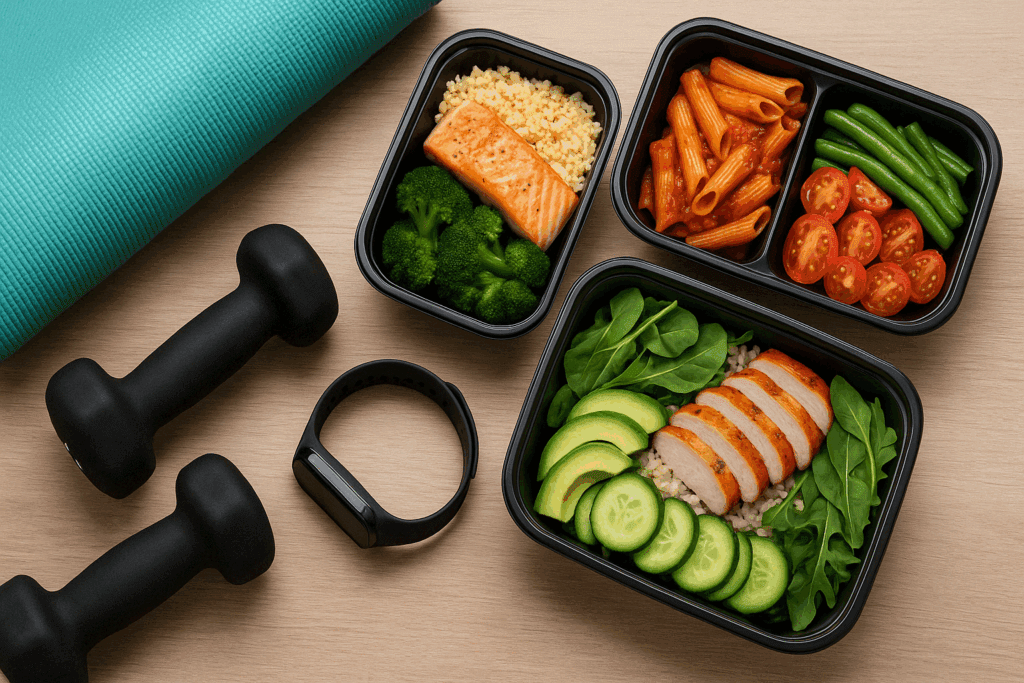
Final Thoughts: Choosing the Best Weight Loss Meal Delivery for Lasting Results
Ultimately, finding the best weight loss meal delivery service requires a blend of evidence, personalization, and practicality. While many programs make bold claims, the most successful ones are rooted in science and emphasize real food, balanced macronutrients, and sustainability. Whether you are exploring the ketogenic diet vs low carb alternatives or searching for the best prepared meals for weight loss on a budget, your choice should reflect your long-term goals and daily realities.
While affordability is key, the cheapest weight loss meal delivery is not always the most effective. Prioritize services that offer quality ingredients, transparent labeling, and expert guidance—and view meal delivery not as a short-term fix, but as a catalyst for long-lasting health transformation. With careful selection and mindful implementation, you can enjoy convenient, satisfying meals that support your weight loss journey while nurturing your overall well-being.
If you’re weighing the benefits of is keto a low carb diet or still deciding which approach feels right, remember that the best plan is the one you can stick with. Whether your path involves a strict keto plan, a moderate low-carb diet, or a plant-forward strategy, sustainable success starts with informed choices, consistent habits, and a commitment to your health goals.
Was this article helpful? Don’t let it stop with you. Share it right now with someone who needs to see it—whether it’s a friend, a colleague, or your whole network. And if staying ahead on this topic matters to you, subscribe to this publication for the most up-to-date information. You’ll get the latest insights delivered straight to you—no searching, no missing out.
Further Reading:
9 Best Meal Delivery Services for Weight Loss in 2025, Tested and Approved by Dietitians
We Tried the 10 Best Meal Delivery Services for Weight Loss for 2025
10 Best Meal Delivery Services for Weight Loss, According to a Dietitian
Disclaimer
The information contained in this article is provided for general informational purposes only and is not intended to serve as medical, legal, or professional advice. While NewsHealthWatch strives to present accurate, up-to-date, and reliable content, no warranty or guarantee, expressed or implied, is made regarding the completeness, accuracy, or adequacy of the information provided. Readers are strongly advised to seek the guidance of a qualified healthcare provider or other relevant professionals before acting on any information contained in this article. NewsHealthWatch, its authors, editors, and contributors expressly disclaim any liability for any damages, losses, or consequences arising directly or indirectly from the use, interpretation, or reliance on any information presented herein. The views and opinions expressed in this article are those of the author(s) and do not necessarily reflect the official policies or positions of NewsHealthWatch.

